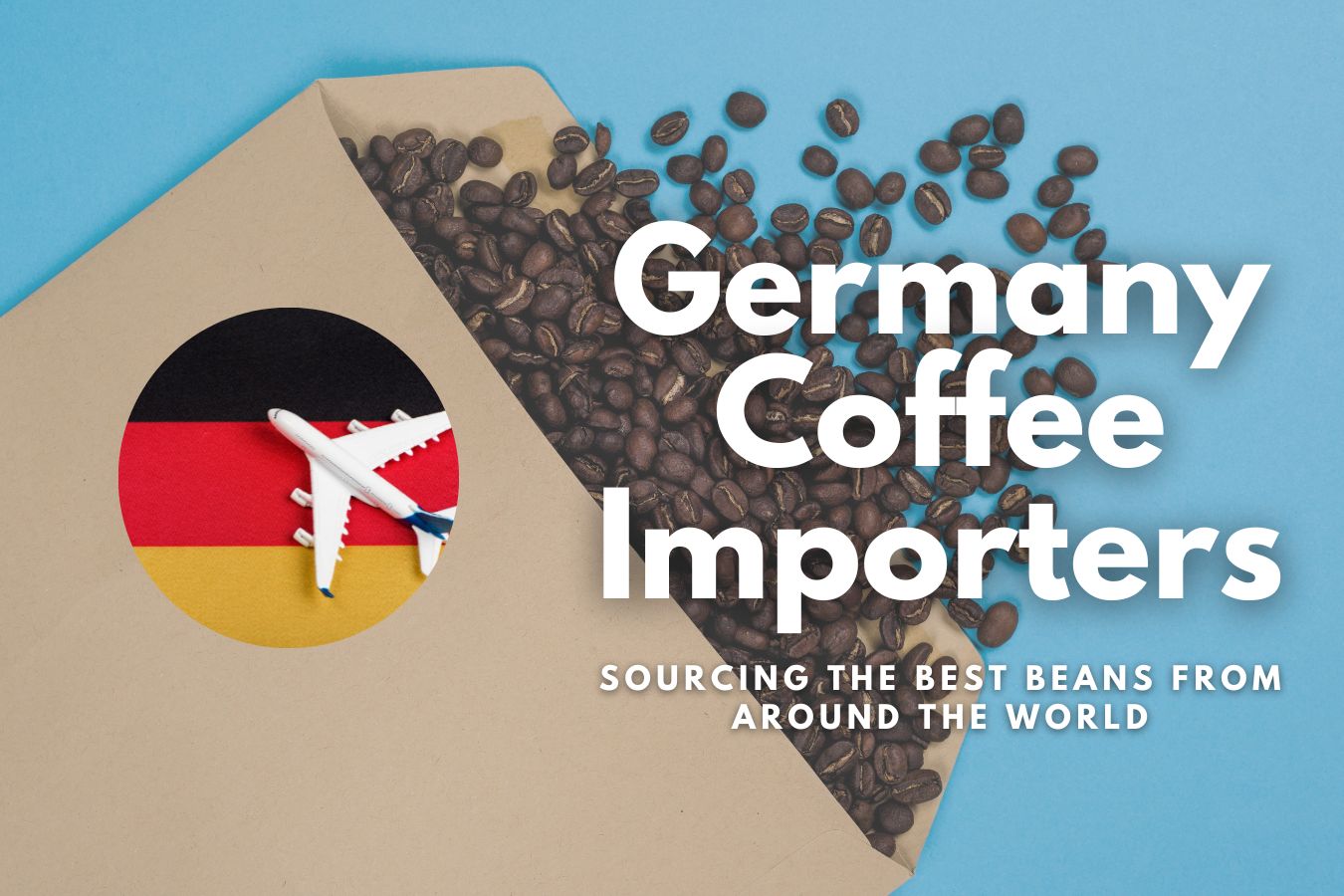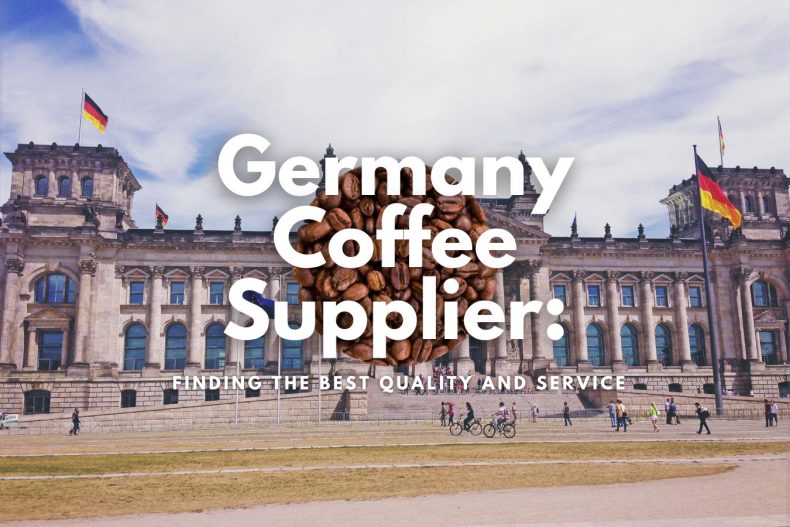
Germany coffee importers are an integral part of the country’s coffee industry. Learn about the sourcing process and how importers ensure the best beans make it to your cup.
Introduction
Coffee is an essential part of Germany’s daily routine, and the country has a thriving coffee industry that is constantly evolving. Coffee is not only a popular beverage in Germany, but it is also a significant economic contributor. Germany is the world’s third-largest importer of coffee, after the United States and France, with an estimated 1.15 million tons of coffee imported in 2020.
Coffee importers play a crucial role in the coffee industry, ensuring that high-quality beans make it to coffee roasters and cafes. In this article, we will explore the world of Germany coffee importers and the sourcing process, including how they ensure that the best beans make it to your cup.
Market Overview
The coffee market in Germany is thriving, with Germans consuming an estimated 163 liters of coffee per capita annually. Coffee importing is a significant part of the coffee market in Germany, with approximately 85% of the coffee consumed in Germany being imported.
The Germany coffee importing market is highly competitive, with numerous companies involved in the process.
Process of Importing Coffee in Germany
The process of importing coffee to Germany involves several steps. First, coffee importers must comply with the regulations set forth by the German government. The rules cover many areas, including health, safety, and quality.
Once customs have cleared the coffee, it is transported to the importer’s warehouse. The coffee is then roasted, packaged, and distributed to retailers and coffee shops across Germany.
The process of importing coffee to Germany is not without its challenges. Importers must navigate complex regulations and logistical issues to ensure that the coffee arrives in Germany in a timely and safely. Additionally, importers must ensure that the coffee is of high quality and meets the expectations of German coffee consumers.
Top Coffee Importing Companies in Germany
There are numerous companies involved in the coffee importing industry in Germany. Some of the top companies include Tchibo, Melitta, and Lavazza. These companies have a significant market share in Germany and are known for their high-quality coffee products.
Tchibo is one of the largest coffee roasters and retailers in Germany, with a presence in over 60 countries. Melitta is a family-owned company operating in Germany for over 100 years. Lavazza is an Italian coffee company with a significant presence in Germany, offering a wide range of coffee products.
Sustainability in Coffee Importing
Sustainability is becoming an increasingly important issue in the coffee-importing industry. Many coffee importers in Germany are taking steps to ensure that their products are sustainably sourced and produced. This includes using sustainable farming practices, reducing waste, and supporting fair trade practices.
Importers can participate in several sustainable coffee certification programs, including Fairtrade, Rainforest Alliance, and UTZ. These programs ensure that coffee is produced in an environmentally friendly and socially responsible manner.
Future of Germany Coffee Importers Market
The future of the coffee importing market in Germany looks bright. There are several emerging trends in the industry, including an increased focus on sustainability, the rise of specialty coffee, and the growth of e-commerce.
Additionally, the coffee industry in Germany is becoming increasingly innovative, with new products and technologies being developed to meet the changing needs of consumers.
Sourcing Coffee Beans: The Role of Germany Coffee Importers
Coffee beans are grown in various countries worldwide, and each country has its unique flavor profile, influenced by factors such as altitude, soil, and climate. The sourcing process for coffee importers involves identifying and selecting the best coffee beans worldwide. Here are some of the steps involved in the sourcing process:
Researching Coffee Origins
Coffee importers start by researching coffee origins worldwide and identifying the best coffee-growing regions. They consider various factors, such as soil composition, altitude, rainfall, and temperature, which affect the quality and flavor of the beans. Countries such as Ethiopia, Colombia, Brazil, and Guatemala are renowned for their coffee production, and Germany coffee importers often source beans from these regions.
Building Relationships with Farmers
Building relationships with farmers is crucial in the coffee-sourcing process. Coffee importers establish direct trade relationships with farmers, cooperatives, and exporters to ensure transparency in the supply chain.
This direct relationship benefits the farmers by offering a fair price for their beans, and the importers can ensure that the beans meet their quality standards.
Cupping and Sampling
Once coffee importers identify potential sources of coffee beans, they cup and sample the beans to evaluate their quality and flavor profile. Cupping involves tasting different coffee samples and evaluating them based on aroma, flavor, acidity, body, and aftertaste. The importers then select the best beans based on their taste and quality.
Quality Control and Certification
Coffee importers ensure that the beans they source meet their quality standards and are certified by organizations such as Fairtrade, Rainforest Alliance, and Organic certification bodies. These certifications ensure that the beans are grown sustainably, farmers receive fair compensation, and the coffee is high quality.
Challenges Faced by Germany Coffee Importers
While sourcing coffee beans may seem straightforward, coffee importers face various challenges that can affect the quality and consistency of the beans. Here are some of the challenges faced by Germany coffee importers:
Weather and Climate Change
Weather patterns and climate change can significantly affect coffee production, resulting in fluctuations in the quality and quantity of beans produced. Extreme weather events such as droughts and floods can damage crops, affecting the supply of coffee beans.
Political Instability and Conflict
Political instability and conflict in coffee-producing regions can disrupt the supply chain, affecting the quality and consistency of the beans. Importers must be aware of the political situation in these regions and have contingency plans to ensure a steady supply of coffee beans.
Quality Control and Consistency
Maintaining consistent quality can be challenging for coffee importers, especially when sourcing beans from multiple origins. Importers must ensure that the beans meet quality standards and are
consistent across different batches. The importers must monitor the beans’ quality during shipping and storage to maintain their flavor profile.
Price Fluctuations
Coffee bean prices are subject to fluctuations, which can affect importers’ profitability and the final cost of the coffee. Importers need to monitor market trends and adjust their pricing strategy accordingly.
Logistics and Transportation
The logistics and transportation of coffee beans are crucial in ensuring they reach their destination on time and in good condition. Importers must coordinate with shipping companies, customs officials, and warehouses to ensure the beans are transported efficiently and securely.
FAQs
- What is the role of coffee importers in the coffee industry?
Coffee importers play a crucial role in the coffee industry by sourcing high-quality beans worldwide and ensuring they reach coffee roasters and cafes.
- How do coffee importers source their coffee beans?
Coffee importers source coffee beans by researching coffee origins, building relationships with farmers, cupping and sampling the beans, and ensuring quality control and certification.
- What are the challenges faced by coffee importers?
Coffee importers face various challenges, including weather and climate change, political instability and conflict, quality control and consistency, price fluctuations, and logistics and transportation.
- How do coffee importers ensure the beans maintain the quality during shipping and storage?
Importers monitor the beans’ quality during the shipping and storage process to ensure that they maintain their flavor profile. They also provide that the beans are stored in ideal conditions to prevent spoilage and degradation.
Conclusion
Germany coffee importers ensure that high-quality coffee beans make it to your cup. The sourcing process involves identifying the best coffee-growing regions, building relationships with farmers, cupping and sampling the beans, and ensuring quality control and certification.
Importers face various challenges, such as weather and climate change, political instability and conflict, quality control and consistency, price fluctuations, and logistics and transportation. Despite these challenges, coffee importers continue to work hard to provide coffee enthusiasts with the best coffee beans worldwide.

